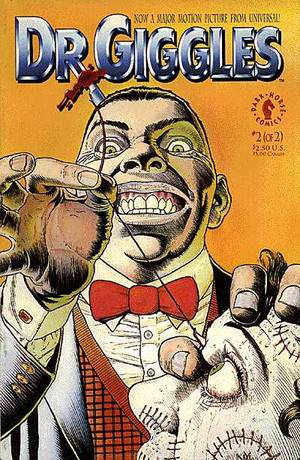From the Wall Street Journal: Democrats Expect to Have Health Votes.
And later on, it seems they did indeed have them. 219 to 212.
The biggest transformation of the U.S. health system in decades won approval on Capitol Hill late Sunday, the culmination of efforts by generations of Democrats to achieve near-universal health coverage.
Facing voters' judgment in the fall, Democrats bet they could overcome public misgivings on a bill that reshapes one-sixth of the U.S. economy. The final battle on the House floor exposed again the divisions that have riven Congress and the nation over the past year.
....
Still to be voted on late Sunday night was a companion bill making changes to the Senate bill, a measure necessary to attract support in the House. After House approval, those changes still need to go before the Senate.
I wonder what incentive the Senate will have to pass those changes. They have the House's votes. What will the House do if the Senate reneges? Can they mount a recall vote?
I'm sure it won't be a problem, because the Senators will do the honorable thing and keep their promises.
The legislation will extend health coverage to 32 million Americans now without insurance, according to the Congressional Budget Office. It will mandate that almost every American carry health insurance...
I thought the insurance companies were the bad guys. So we force more people to do business with them? That'll sure show 'em!
Democrats are highlighting popular provisions, such as one that requires insurance companies to accept all comers, even people who are already sick.
In that case, why buy insurance? If the fine for not having insurance is low enough, just pay that until you get sick. I can see insurance companies bleeding money over this, or raising their rates. But they'd have to raise rates on everyone, otherwise it's discrimination against people with pre-existing conditions.
The bulk of the legislation wouldn't take effect until 2014. Once the tax credits and Medicaid expansion are in place, most Americans will be required to carry health insurance or pay a fee, topping out at either $695 a year or 2.5% of income.
Employers would have to provide affordable insurance or pay a penalty of up to $3,000 per worker.
So an individual whose health insurance costs more than about $58/month is better off just paying the fine. (Well, if he makes no more than $27,800/year, that is – about $13.90 per hour.)
An employer whose employee costs more than $250/month to insure is better off paying the penalty.
I think my employer pays a little under $500/month for my insurance.
One of the rabid proponents I've been crossing swords pointed me at this piece: If the Senate bill passes, here’s what happens immediately.
1. Adult children may remain as dependents on their parents’ policy until age 26
Heretofore, insurance policies have assumed they need carry children only until 18, 21, or maybe older if the kid's in college. This is bound to increase the expense to the company. Probably not a whole lot, as people that age are usually pretty healthy, unless they do something stupid.
Children under age 19 may not be excluded for pre-existing conditions
So why bother getting them insured? Unless the fine is more than the premiums would be, that is.
No more lifetime or annual caps on coverage
Again, insurance companies base their projected costs, and set their premiums, on the assumption that these caps are valid. Either insurance companies have to raise rates to cover increased costs, or start losing money.
Free preventative care for all
Really? How much preventative care? Monthly MRI scans for anything they might spot? Weekly biopsies? All free?
Adults with pre-existing conditions may buy into a national high-risk pool until the exchanges come online. While these will not be cheap, they’re still better than total exclusion and get some benefit from a wider pool of insureds.
At last, something I can agree with.
Small businesses will be entitled to a tax credit for 2009 and 2010, which could be as much as 50% of what they pay for employees’ health insurance.
Room to quibble, but tax credits are usually a good thing.
The “donut hole” closes for Medicare patients, making prescription medications more affordable for seniors.
I guess Medicare has to pay for these prescription medications? Too bad they're losing half a trillion dollars over the next decade.
Requirement that all insurers must post their balance sheets on the Internet and fully disclose administrative costs, executive compensation packages, and benefit payments.
Since I work for the government, my salary is an open record. It was even published in a newspaper database recently. I guess this is how the Obama Administration meant by "transparancy".
Authorizes early funding of community health centers in all 50 states
Frankly, I don't know from this. A way to get more community health centers built faster? No idea.


 Here's the opening to a misguided but not-altogether-bad
Here's the opening to a misguided but not-altogether-bad 

